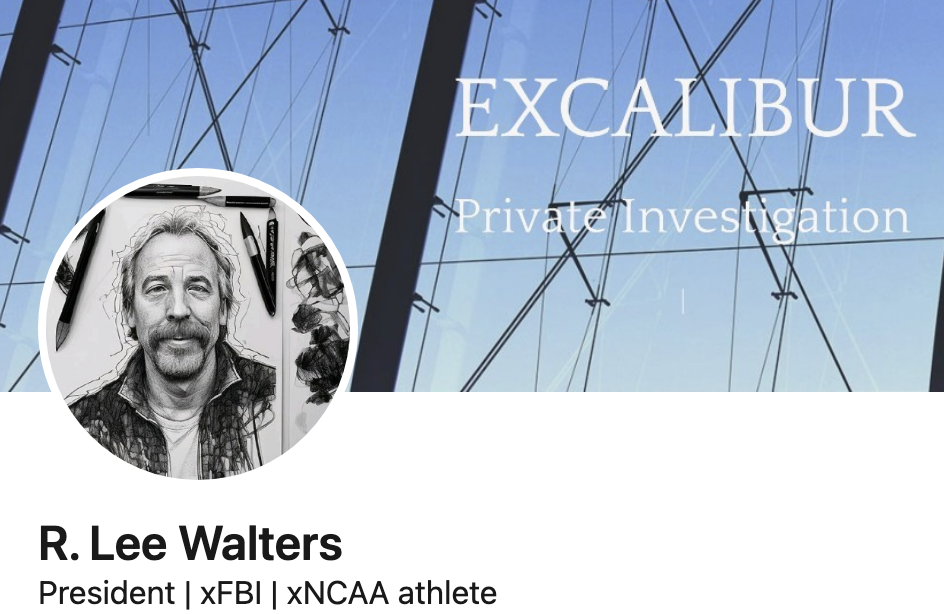Why are seniors more vulnerable to being taken advantage of? There are many reasons including the fact that many of them live in isolated conditions and may not get the kind of communication with others that they can run things by. Senior citizens also have, naturally, a decline in their cognitive and physical abilities to varying degrees and may not know about the latest technological advancements, such as residential security systems which could make them safer and less prone to being taken advantage of.
The FBI lists the following schemes that senior citizens should be aware of:
Health Care Fraud or Health Insurance Fraud
Medical Equipment Fraud
Equipment manufacturers offer “free” products to individuals. Insurers are then charged for products that were not needed and/or may not have been delivered.
“Rolling Lab” Schemes
Unnecessary and sometimes fake tests are given to individuals at health clubs, retirement homes, or shopping malls and billed to insurance companies or Medicare.
Services Not Performed
Customers or providers bill insurers for services never rendered by changing bills or submitting fake ones.
Medicare Fraud
Medicare fraud can take the form of any of the health insurance frauds described above. Senior citizens are frequent targets of Medicare schemes, especially by medical equipment manufacturers and distributors who offer seniors free medical products in exchange for their Medicare numbers. Because a physician has to sign a form certifying that equipment or testing is needed before Medicare pays for it, con artists fake signatures or bribe corrupt doctors to sign the forms. Once a signature is in place, the manufacturers bill Medicare for merchandise or service that was not needed or was not ordered.
Tips for Avoiding Health Care Fraud or Health Insurance Fraud:
• Never sign blank insurance claim forms.
• Never give blanket authorization to a medical provider to bill for services rendered.
• Ask your medical providers what they will charge and what you will be expected to pay out-of-pocket.
• Carefully review your insurer’s explanation of the benefits statement. Call your insurer and provider if you have questions.
• Do not do business with door-to-door or telephone salespeople who tell you that services of medical equipment are free.
• Give your insurance/Medicare identification only to those who have provided you with medical services.
• Keep accurate records of all health care appointments.
• Know if your physician ordered equipment for you
Counterfeit Prescription Drugs
Tips for Avoiding Counterfeit Prescription Drugs:
• Be mindful of appearance. Closely examine the packaging and lot numbers of prescription drugs and be alert to any changes from one prescription to the next.
• Consult your pharmacist or physician if your prescription drug looks suspicious.
• Alert your pharmacist and physician immediately if your medication causes adverse side effects or if your condition does not improve.
• Use caution when purchasing drugs on the Internet. Do not purchase medications from unlicensed online distributors or those who sell medications without a prescription. Reputable online pharmacies will have a seal of approval called the Verified Internet Pharmacy Practice Site (VIPPS), provided by the Association of Boards of Pharmacy in the United States.
• Be aware that product promotions or cost reductions and other “special deals” may be associated with counterfeit product promotion.
Funeral and Cemetery Fraud
Tips for Avoiding Funeral and Cemetery Fraud:
▪ Be an informed consumer. Take time to call and shop around before making a purchase. Take a friend with you who may offer some perspective to help make difficult decisions. Funeral homes are required to provide detailed general price lists over the telephone or in writing.
▪ Educate yourself fully about caskets before you buy one, and understand that caskets are not required for direct cremations.
▪ Understand the difference between funeral home basic fees for professional services and any fees for additional services.
▪ Know that embalming rules are governed by state law and that embalming is not legally required for direct cremations.
▪ Carefully read all contracts and purchasing agreements before signing and make certain that all of your requirements have been put in writing.
▪ Make sure you understand all contract cancellation and refund terms, as well as your portability options for transferring your contract to other funeral homes.
▪ Before you consider prepaying, make sure you are well informed. When you do make a plan for yourself, share your specific wishes with those close to you.
▪ As a general rule governing all of your interactions as a consumer, do not allow yourself to be pressured into making purchases, signing contracts, or committing funds. These decisions are yours and yours alone.
Fraudulent “Anti-Aging” Products
Tips for Avoiding Fraudulent “Anti-Aging” Products:
▪ If it sounds too good to be true, it probably is. Watch out for “Secret Formulas” or “Breakthroughs.”
▪ Don’t be afraid to ask questions about the product. Find out exactly what it should and should not do for you.
▪ Research a product thoroughly before buying it. Call the Better Business Bureau to find out if other people have complained about the product.
▪ Be wary of products that claim to cure a wide variety of illnesses—particularly serious ones—that don’t appear to be related.
▪ Be aware that testimonials and/or celebrity endorsements are often misleading.
▪ Be very careful of products that are marketed as having no side effects.
▪ Question products that are advertised as making visits to a physician unnecessary.
▪ Always consult your doctor before taking any dietary or nutritional supplement.
Telemarketing Fraud
If you are age 60 or older—and especially if you are an older woman living alone—you may be a special target of people who sell bogus products and services by telephone. Telemarketing scams often involve offers of free prizes, low-cost vitamins and health care products, and inexpensive vacations. There are warning signs to these scams. If you hear these—or similar—“lines” from a telephone salesperson, just say “no thank you,” and hang up the telephone:
▪ “You must act now, or the offer won’t be good.”
▪ “You’ve won a free gift, vacation, or prize.” But you have to pay for “postage and handling” or other charges.
▪ “You must send money, give a credit card or bank account number, or have a check picked up by courier.” You may hear this before you have had a chance to consider the offer carefully.
▪ “You don’t need to check out the company with anyone.” The callers say you do not need to speak to anyone, including your family, lawyer, accountant, local Better Business Bureau, or consumer protection agency.
▪ “You don’t need any written information about the company or its references.”
▪ “You can’t afford to miss this high-profit, no-risk offer.”
Tips for Avoiding Telemarketing Fraud:
It’s very difficult to get your money back if you’ve been cheated over the telephone. Before you buy anything by telephone, remember:
▪ Don’t buy from an unfamiliar company. Legitimate businesses understand that you want more information about their company and are happy to comply.
▪ Always ask for and wait until you receive written material about any offer or charity. If you get brochures about costly investments, ask someone whose financial advice you trust to review them. But, unfortunately, beware—not everything written down is true.
▪ Always check out unfamiliar companies with your local consumer protection agency, Better Business Bureau, state attorney general, the National Fraud Information Center, or other watchdog groups. Unfortunately, not all bad businesses can be identified through these organizations.
▪ Obtain a salesperson’s name, business identity, telephone number, street address, mailing address, and business license number before you transact business. Some con artists give out false names, telephone numbers, addresses, and business license numbers. Verify the accuracy of these items.
▪ Before you give money to a charity or make an investment, find out what percentage of the money is paid in commissions and what percentage actually goes to the charity or investment.
▪ Before you send money, ask yourself a simple question. “What guarantee do I really have that this solicitor will use my money in the manner we agreed upon?”
▪ Don’t pay in advance for services. Pay services only after they are delivered.
▪ Be wary of companies that want to send a messenger to your home to pick up money, claiming it is part of their service to you. In reality, they are taking your money without leaving any trace of who they are or where they can be reached.
▪ Always take your time making a decision. Legitimate companies won’t pressure you to make a snap decision.
▪ Don’t pay for a “free prize.” If a caller tells you the payment is for taxes, he or she is violating federal law.
▪ Before you receive your next sales pitch, decide what your limits are—the kinds of financial information you will and won’t give out on the telephone.
▪ Be sure to talk over big investments offered by telephone salespeople with a trusted friend, family member, or financial advisor. It’s never rude to wait and think about an offer.
▪ Never respond to an offer you don’t understand thoroughly.
▪ Never send money or give out personal information such as credit card numbers and expiration dates, bank account numbers, dates of birth, or social security numbers to unfamiliar companies or unknown persons.
▪ Be aware that your personal information is often brokered to telemarketers through third parties.
▪ If you have been victimized once, be wary of persons who call offering to help you recover your losses for a fee paid in advance.
▪ If you have information about a fraud, report it to state, local, or federal law enforcement agencies.
Internet Fraud
As web use among senior citizens increases, so does their chances to fall victim to Internet fraud. Internet Fraud includes non-delivery of items ordered online and credit and debit card scams.
Investment Schemes
As they plan for retirement, senior citizens may fall victim to investment schemes. These may include advance fee schemes, prime bank note schemes, pyramid schemes, and Nigerian letter fraud schemes.
Reverse Mortgage Scams
The FBI and the U.S. Department of Housing and Urban Development Office of Inspector General (HUD-OIG) urge consumers, especially senior citizens, to be vigilant when seeking reverse mortgage products. Reverse mortgages, also known as home equity conversion mortgages (HECM), have increased more than 1,300 percent between 1999 and 2008, creating significant opportunities for fraud perpetrators.
Reverse mortgage scams are engineered by unscrupulous professionals in a multitude of real estate, financial services, and related companies to steal the equity from the property of unsuspecting senior citizens or to use these seniors to unwittingly aid the fraudsters in stealing equity from a flipped property.
In many of the reported scams, victim seniors are offered free homes, investment opportunities, and foreclosure or refinance assistance. They are also used as straw buyers in property flipping scams. Seniors are frequently targeted through local churches and investment seminars, as well as television, radio, billboard, and mailer advertisements.
A legitimate HECM loan product is insured by the Federal Housing Authority. It enables eligible homeowners to access the equity in their homes by providing funds without incurring a monthly payment. Eligible borrowers must be 62 years or older who occupy their property as their primary residence and who own their property or have a small mortgage balance.
Tips for Avoiding Reverse Mortgage Scams:
▪ Do not respond to unsolicited advertisements.
▪ Be suspicious of anyone claiming that you can own a home with no down payment.
▪ Do not sign anything that you do not fully understand.
▪ Do not accept payment from individuals for a home you did not purchase.
▪ Seek out your own reverse mortgage counselor.
Many seniors grew up in a time when their families left their doors unlocked and never had to worry about someone breaking in but, unfortunately, those days are long gone. No matter how safe the neighborhood they live in is, even a gated community, there are certain precautions grandmas and grandpas should take:
• Make sure all doors and windows remained locked at all times.
• Make sure every externally facing door has some type of peephole. I also recommend the Ring video doorbell for seniors as they can see who is at the door and be notified before someone actually reaches the door.
• Make sure all exterior doors are made of solid materials such as metal or wood. As part of those, make sure that extra long screws are used in the strike plate and that security door pins are also in place.
• Make sure windows that could be potentially breached, have security film on them, which makes it much harder to break. I’m seeing this used more and more and not just on senior citizen’s residences.
• Make sure any gates leading to fenced in areas are always locked and secure. I recommend using a good padlock with a key. Combination locks will also work, but a senior citizen will have to remember the code and who needs another number to remember?
• Make sure that grandma/grandpa always answers a door with a telephone in hand. If they absolutely must open the door they can tell whoever is on the doorstep that they are on a call. This will give any burglar or other creep pause and will usually be enough to make them move on to another target.
• Remember the good old days when you could leave a key outside under the rug or under a flowerpot? Forget them! Those days are over. Never leave a key outside. They are far too easy to find and you’re just providing a key to your castle. It’s much better to leave one with a trusted neighbor.
• Make sure grandma and/or grandpa have a home security system. This, alone, will provide peace of mind and really is a must in my opinion. Home security systems can also be tied in with medical alert systems that a senior citizen can activate should they have an accident or fall in their home.
• Make sure that all of your exterior lighting has motion detection capabilities. I recently wrote an article, here, about how motion sensors work if interested. Motion detector exterior lighting is a great way to keep burglars from operating in the dark. I also recommend making sure any entry pathway is covered by these types of lighting. They are readily available and can be purchased and installed for less than $100 in most cases
.
• Whenever leaving your residence, make sure you do two things. Arm your security system! You’d be surprised how many people don’t arm them and thieves know this. And leave a television or radio on to give the appearance that someone may be home.
I hope these security tips will make grandma and grandpa just a little more secure as they go through their daily lives.
If your a senior who would like advise on any of the topics listed, or just have a question about anything, please give us a call. We offer security assessments of residences/businesses and can work with you to make things more secure. We also offer presentations to senior citizen groups on a regular basis and would love to present to your group.
At your service.
Lee Walters
President/Lead Investigator
EXCALIBUR Private Investigation
719.208.4088
Colorado Springs, Colorado




 RSS Feed
RSS Feed













